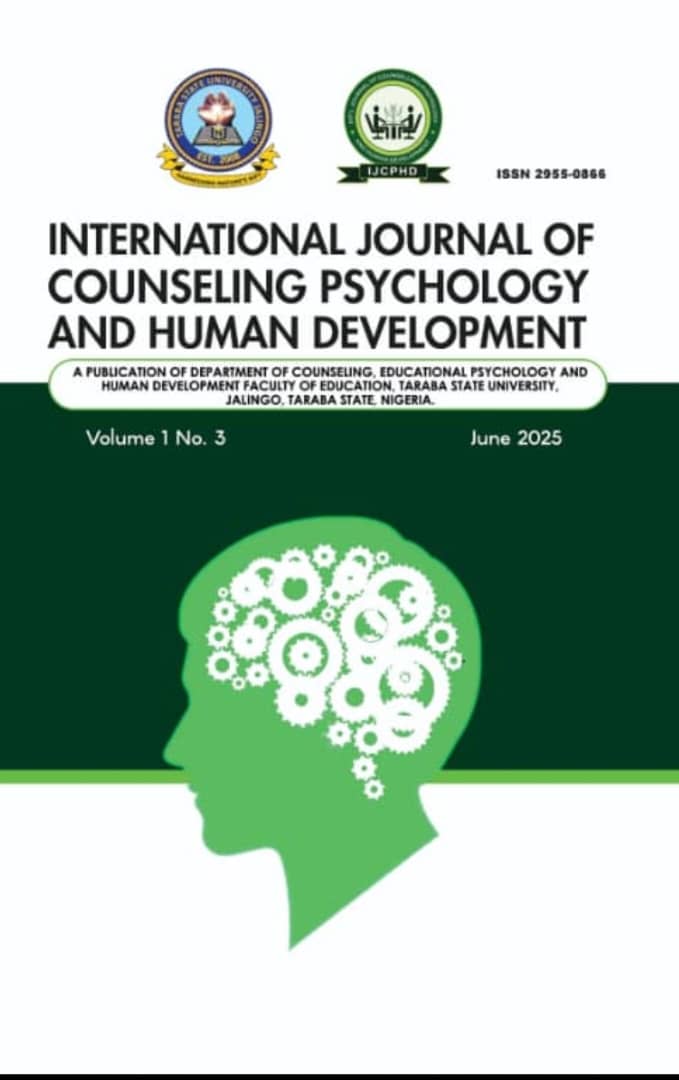EFFECT OF COGNITIVE BEHAVIOURAL THERAPY ON MENSTRUAL HYGIENE AND REPRODUCTIVES HEALTH AWARENESS AMONG SECONDARY SCHOOL GIRLS IN JALINGO EDUCATION ZONE, TARABA STATE NIGERIA.
Keywords:
Cognitive Behavioural Therapy, Menstrual Hygiene, Reproductive healthAbstract
This research examined the Effect of Cognitive Behavioural Therapy on Menstrual Hygiene and Reproductive Health Awareness Among Secondary School girls in Jalingo Education Zone, Taraba state, Nigeria. Two objectives and two research questions were formulated to guide the study with corresponding hypotheses tested at 0.05 level of significance. Quasi experimental design of one group pre-test and post-test treatment were adopted for the study. The target population of the study consisted of 93 SSII girls (Senior Secondary School class II) out of which 72 girls were selected as sample size for the study. The selection was based on scoring of instrument after conducting a pretest. The research instrument used for data collection was titled: Menstrual hygiene and reproductive health awareness questionnaire (MENRHAQ). Cronbach Alpha coefficient was used to determine the reliability of instrument and coefficient of 0.93 was obtained. The face and content validity of the instrument were confirmed by three experts from faculty of education, Taraba state University Jalingo. The selected student underwent an eight session of CBT which lasted 45 minutes for each session. Descriptive statistics of mean and standard deviation were used to answer research questions, while inferential statistics of paired sample t-test were used to test the null hypotheses at 0.05 level of significance. Findings of the study reveals that CBT was effective in increasing awareness on menstrual hygiene and reproductive health among secondary school girls in Jalingo Education Zone, Taraba state, Nigeria. This was evident by the result of the study after CBT intervention where the average post-test score for menstrual misconception dropped to 2.02 from 2.57 pretest before intervention. Also CBT was effective in reducing menstrual stigmatization as shown by the result for menstrual stigmatization where the post-test mean score dropped to 2.32 from 2.65 mean score before intervention (pretest). The researchers recommend that counsellors, school health educators and teachers should be encouraged to use CBT as a counselling technique to help secondary school girls overcome menstrual misconceptions and stigmatization birthed from cultural, traditional and religious beliefs. Also CBT should be used in creating or increasing awareness on topics related to secondary school students.


